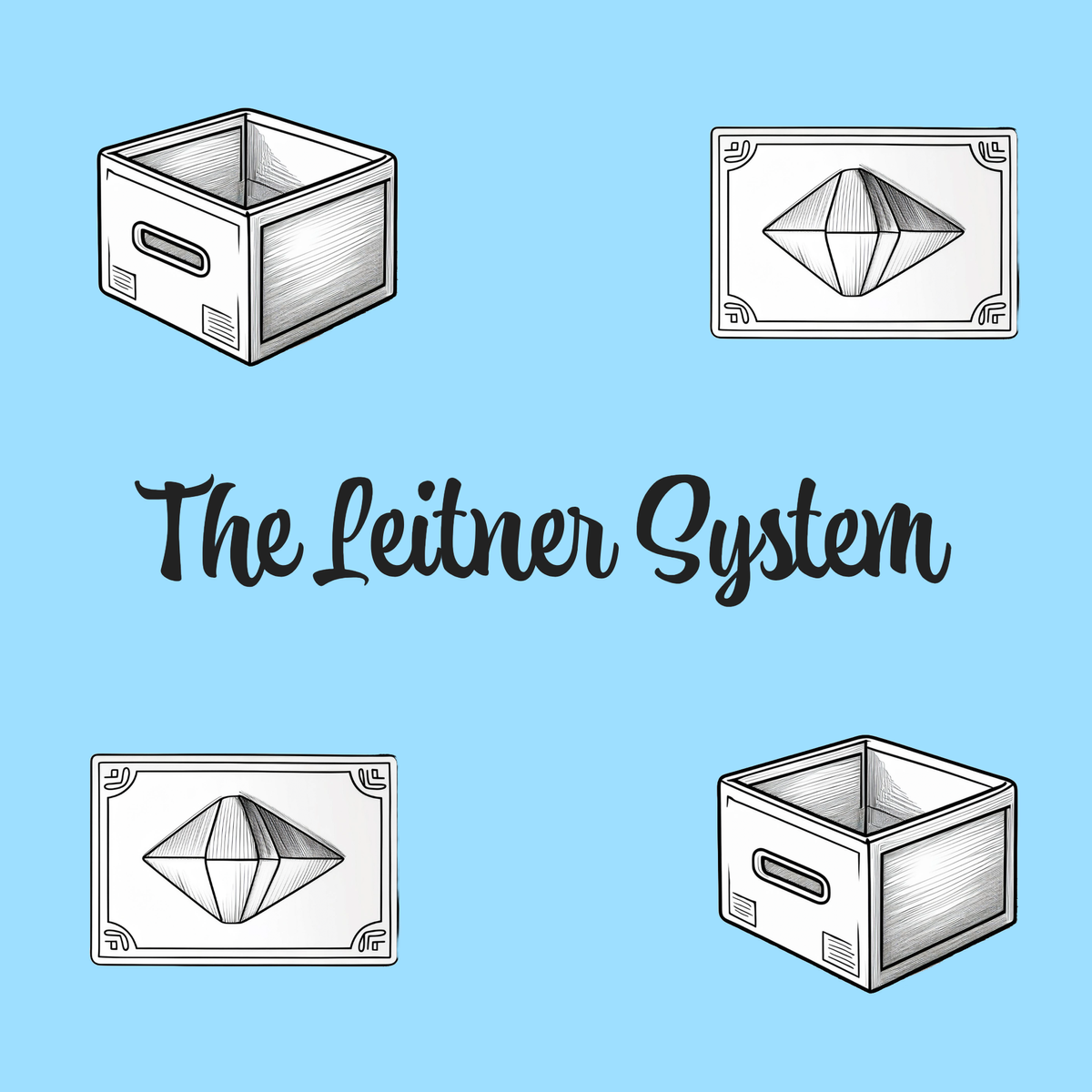Master Your Memory: The Leitner System Explained

Hi Team,
As you look to improve memory retention, the Leitner System stands out as a technique with simplicity and effectiveness. This system focuses on the science of spaced repetition to commit information to your long-term memory, whilst allowing you to focus on any challenging areas of study. Today, we’ll look at how the Leitner System works and how to incorporate it within your learning journey.
What is The Leitner System
The Leitner System is a flashcard-based method of learning, which was developed by Sebastien Leitner, a German Science journalist, in 1972. The system proposes that learners divide flashcards into groups, based upon how well you know the information. Questions on which the learner has a strong knowledge will be tested at a lesser frequency, compared with areas of weaker knowledge, which receive a more frequent level of testing. One key benefit of this system is to encourage learners to prioritise within their learning journey.
How Does it Work?
Here is a step-by-step breakdown:
- Create your flashcards:
- Write your question or prompt on one side and the answer on the other side.
- Organise your boxes:
- The typical recommendation is to have 3 boxes.
- Each box represents your level of familiarity.
- Box 1 being the questions you are least familiar with and Box 3 being the most familiar.
- Study schedule
- Start with all cards in Box 1.
- If you answer a card correctly, move it to the Box one number higher.
- If you answer incorrectly the flashcard remains or returns to Box 1.
- An advised schedule is to review Box 1 daily, Box 2 every three days and Box 3 every week. You can of course adapt this frequency to suit you.
- Iterate
- Regularly add new cards and adjust existing cards, as required.
Why it Works:
The system works as a result of the spaced repetition and active recall, which are scientifically backed learning techniques. These techniques have been shown to strengthen neural pathways and improve retention. For more of an in depth look into active recall you can check our newsletter on this subject here.
Practical Tips for Success
- Adjust For You: The system was first designed for use with physical flashcards, but this concept works just as well with digital tools.
- Stay Consistent: The key with this system is to remain consistent with the schedule that you set for yourself. The results will follow, providing that you stick to the frequency of testing on a consistent basis.
- Personalise Content: Make the system suit you, to ensure that motivation remains high. If you want to add colour and visuals to your learning, then that is a great way to stay committed to your progress.
Who Should Use The Leitner System?
The Leitner System is great for people learning a new language, preparing for tests and exams, or looking to master complex topics requiring memorisation. Of course, this list is not exhaustive and put simply, the system is there for people looking to learn and memorise information. If you are not sure whether this would work for you, then the best thing is to give the method a try.
Closing Remarks
Understanding the importance of prioritisation within a learning journey is a key skill that the Leitner System supports. If you are looking to memorise and retain information, this system is a fantastic way to ensure that you avoid spending too much time on the information you already know and focus on the items that require improvement. Give it a try and see how it transforms your ability to retain information.
Have you used the Leitner System before? Reply and let me know your thoughts or tips! And if you’re just starting out, share your experience with the technique - I’d love to hear how it works for you.
Did you enjoy what you read? Don’t miss out on weekly tips like these - subscribe now to stay on top of your personal growth journey.
